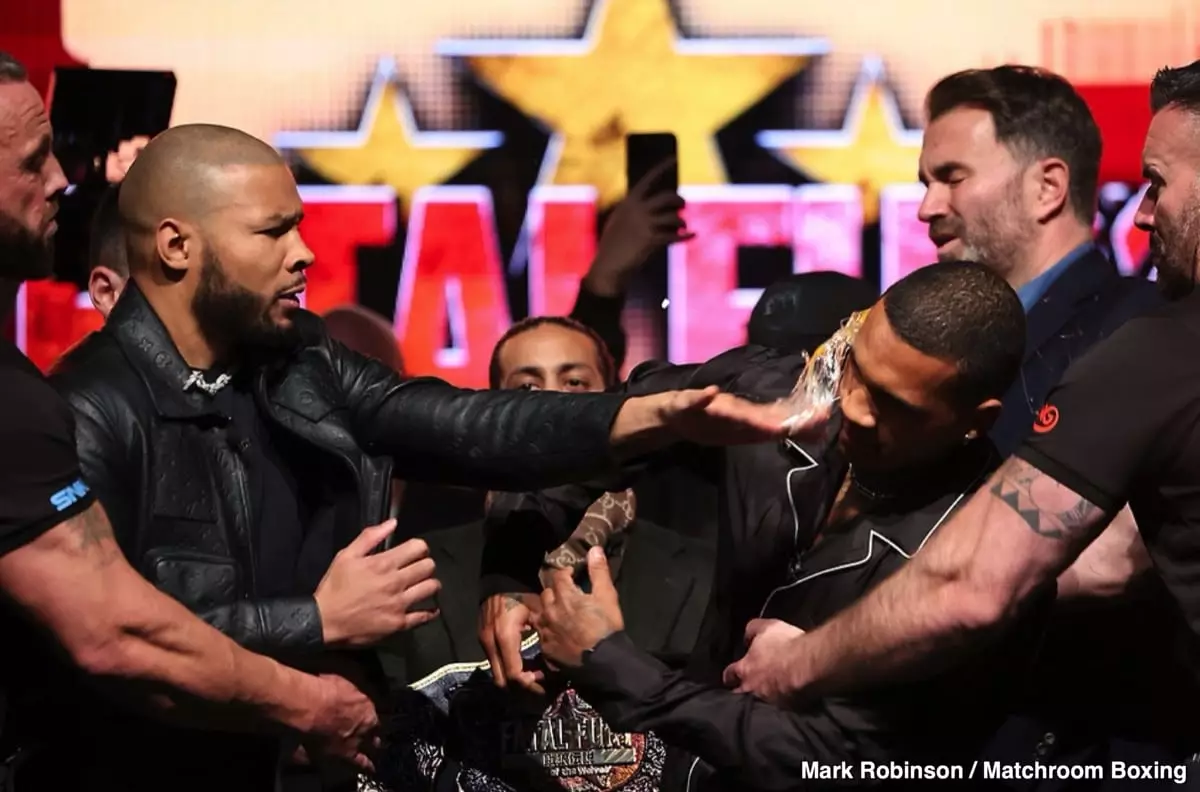In the electrifying arena of boxing promotions, few events stir the pot like a pre-fight showdown. The recent confrontation between Chris Eubank Jr. and Conor Benn at Manchester Central was no exception. Promoter Eddie Hearn found himself in the spotlight as he confronted Eubank Jr. over an unexpected and somewhat ludicrous stunt involving an egg. This incident has raised questions not only about conduct in the sport but also about the marketing strategies that employ theatrics to garner attention.
Hearn’s response revealed his deep investment in the fight promotion and the underlying tensions that often accompany such events. His active engagement—both with the media and in addressing the situation—emphasizes the growing importance of managing not just fighters but their public persona as well. The incident, sparked by Eubank Jr. tagging Benn with an egg during their face-off, represented a dramatic escalation in an ongoing rivalry between two fighters known for their combative spirit.
Eddie Hearn’s reaction to Eubank Jr.’s “egg gate” was one of disbelief. He cast doubt on whether Eubank’s camp was genuinely unaware of the gimmick. Hearn postulated that such audacity required prior planning, suggesting it was orchestrated to heighten tensions leading up to the bout on April 26. Hearn stated, “If you knew about this, you’re a dog,” clearly implying that the anticipation of a fight can cross professional lines into the realm of personal animosity.
This revelation stirred up conjectures about the lengths promoters might go to in attempts to sell tickets. The crux of Hearn’s argument lies in the safety of the fighters and the integrity of the sport—something Hearn takes seriously. The possibility of heightened aggression, highlighted by Hearn’s fears of a physical confrontation between Benn and Eubank Jr. at their next media engagement, necessitates a reevaluation of event management in boxing.
In the volatile realm of combat sports, history has shown us that maintaining a semblance of order during press events is crucial. Hearn cited the example of David Morrell’s belt-throwing incident during a promotional face-off with David Benavidez, which serves as a stark reminder of how fragile the line can be between spectacle and an all-out brawl.
With the ever-evolving antics of fighters trying to capture the spotlight, promotions must implement barriers to ensure the safety of all parties involved. The idea of physical barriers—both literal and figurative—was raised by Hearn as a solution to mitigate potential outbreaks of violence, suggesting that his role extends beyond mere promotion and into that of a security strategist.
One cannot ignore the human emotions tied to the sport of boxing. Hearn poignantly remarked, “Conor is not going to sleep on it,” shedding light on the emotional stakes entwined with professional rivalries. Fighters carry not just their physical prowess into the ring but also their emotional baggage, which can lead to unpredictable outcomes.
The urge to spark reactions—be it through verbal exchanges, staged altercations, or even tossing an egg—indicates an underlying tension that fuels fan engagement. Fans crave authenticity; they want a show that reflects the real animosities and storylines at play. However, with this demand comes the responsibility to ensure that such dramatics don’t spiral into chaos.
As boxing continues to evolve, navigating the complex landscape of fight promotion requires an astute balance of spectacle and safety. Promoters like Hearn must tread carefully, realizing that their role extends beyond marketing. Their responsibility lies in maintaining the sanctity of the sport while engaging audiences.
The aftermath of the egg incident will likely influence strategies for upcoming promotions in the future—reminding us that every action in the ring or at a press conference ripples far beyond that moment. As Hearn aptly criticized reckless behaviors in promotions, the boxing community must embrace this learning experience to foster not only the sport itself but also the camaraderie and respect that truly define it.


Leave a Reply